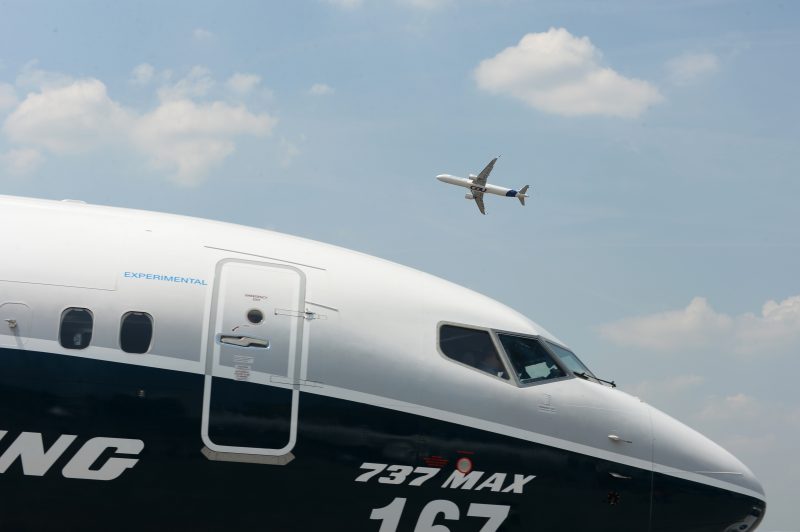Airbus v. Boeing at the WTO: Only the lawyers win
The world’s two aviation giants Boeing and Airbus do not face each other directly at the WTO — Boeing is represented by the US and the EU acts for Airbus (ERIC PIERMONT)
Geneva (AFP) – The tit-for-tat legal battle between Airbus and Boeing at the World Trade Organization could, after 15 years, be fairly described as epic.
When Airbus scored a major win in 2016, the company’s own chief executive Tom Enders said the protracted WTO tussle “benefits only the armies of lawyers both sides employ for more than a decade”.
The world’s two aviation giants do not face each other directly at the WTO’s Dispute Settlement Body, with Boeing represented by the United States and the European Union acting for Airbus.
The hostilities have continued unabated since 2004, when Washington declared that a 1992 US-EU agreement governing subsidies in the aircraft industry was dead.
Here is a summary of the cases that have been brought to date, as fears rise that the row could escalate after the US threatened to impose $11.2 billion in tariffs on European products to counter support allegedly given to Airbus.
– US vs Airbus –
Washington fired the first shot in 2004, accusing Britain, France, Germany and Spain of providing illegal subsidies and grants to support the production of a range of Airbus products.
In 2010, WTO judges delivered a mixed ruling, saying some of the support given to Airbus was prohibited while other parts were permitted under international trade law.
The next eight years saw appeals and counter-appeals over both the substance of the rulings and then over whether the EU had adequately amended its behaviour to comply with the rulings.
The latest compliance ruling is not expected before the end of this year.
– EU vs Boeing –
In a complaint opened in June 2005, the EU alleged that Boeing had received $19.1 billion worth of prohibited subsidies from 1989 to 2006 from various branches of the US government.
WTO judges said in a 2012 ruling that roughly a third of the subsidies in question were illegal.
The US said it would make changes to comply with ruling.
Various disputes were then filed over several years, largely over the question of whether US federal and state governments were actually complying with the ruling.
Last month, WTO judges found that the US had failed to fully remove all the prohibited subsidies.
– Brussels v. Washington state –
In 2014, the EU initiated a third case challenging tax breaks and other incentives provided by Washington state to support production of Boeing’s 777X, which is set to take to the skies in 2020.
It has been dubbed the “baby Boeing” case, given its narrow scope.
In 2017, WTO judges said Washington state’s subsidies were legal in a decision that was not subject to appeal.
Disclaimer: Validity of the above story is for 7 Days from original date of publishing. Source: AFP.


